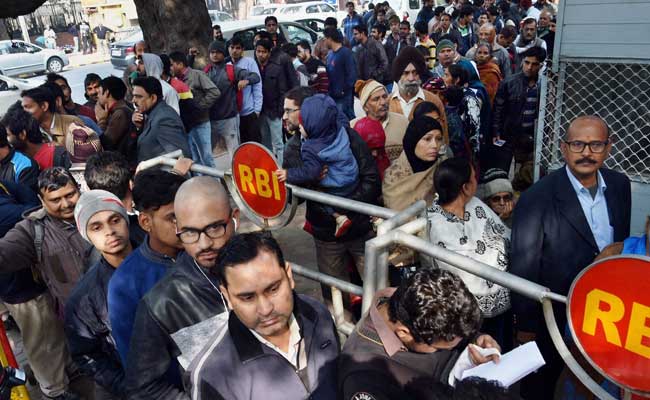
The deadline to submit invalid 500- and 1,000-rupee notes ends today. The RBI has asked banks to submit details of the deposits made in the outlawed currency. It is estimated that more than 90% of the cancelled notes have been already deposited in banks, which means that the government's intention of removing black money may have missed its mark. Here are the 10 latest developments in this big story:
Here are the top 10 developments of the story:
Prime Minister Narendra Modi will address the country tomorrow evening to discuss the impact of his abrupt demonetization drive.
So far, there has been no announcement of whether the cash restrictions at ATMs and withdrawals from banks will remain in place.
On November 8, PM Modi's shock announcement rendered 86 percent of India's currency void, giving people until today to swap their old 500 rupee ($7.30) and 1,000-rupee bills for new ones.
The PM has been widely hailed for his assault on tax evasion but long queues outside banks, a cash crunch and policy flip-flops have led to a concerted attack from the opposition.
The risky gamble is expected to impact the election in Uttar Pradesh, which is expected to be held in February. Many top industrialists and financial experts have praised the PM's call to move towards a digital economy, but some industries have ground to a halt and laid off staff, highlighting India's huge dependence on cash.
As the almost two-month window draws to a close, serpentine queues outside banks have thinned down but a single 2,000 rupee note is still all that most ATMs dispense to customers.
Until March 31, old notes can be deposited with the Reserve Bank of India but today is the last opportunity to do so at other banks. After the March deadline there will be a minimum 10,000 rupees penalty for holding old notes.
Analysts say the cash squeeze will seriously dent India's economic growth in the short term, a prediction challenged by Finance Minister Arun Jaitley. Ratings agency Fitch revised down its GDP forecast for the fourth quarter of 2016 to 6.9 percent from 7.4 percent.
Economists expect the economy to benefit in the long term due to an increase in tax revenues but only once there is a plentiful supply of those elusive new notes in circulation.
Many Indians have said they didn't mind the hours of queuing if it forced the rich to pay taxes.

